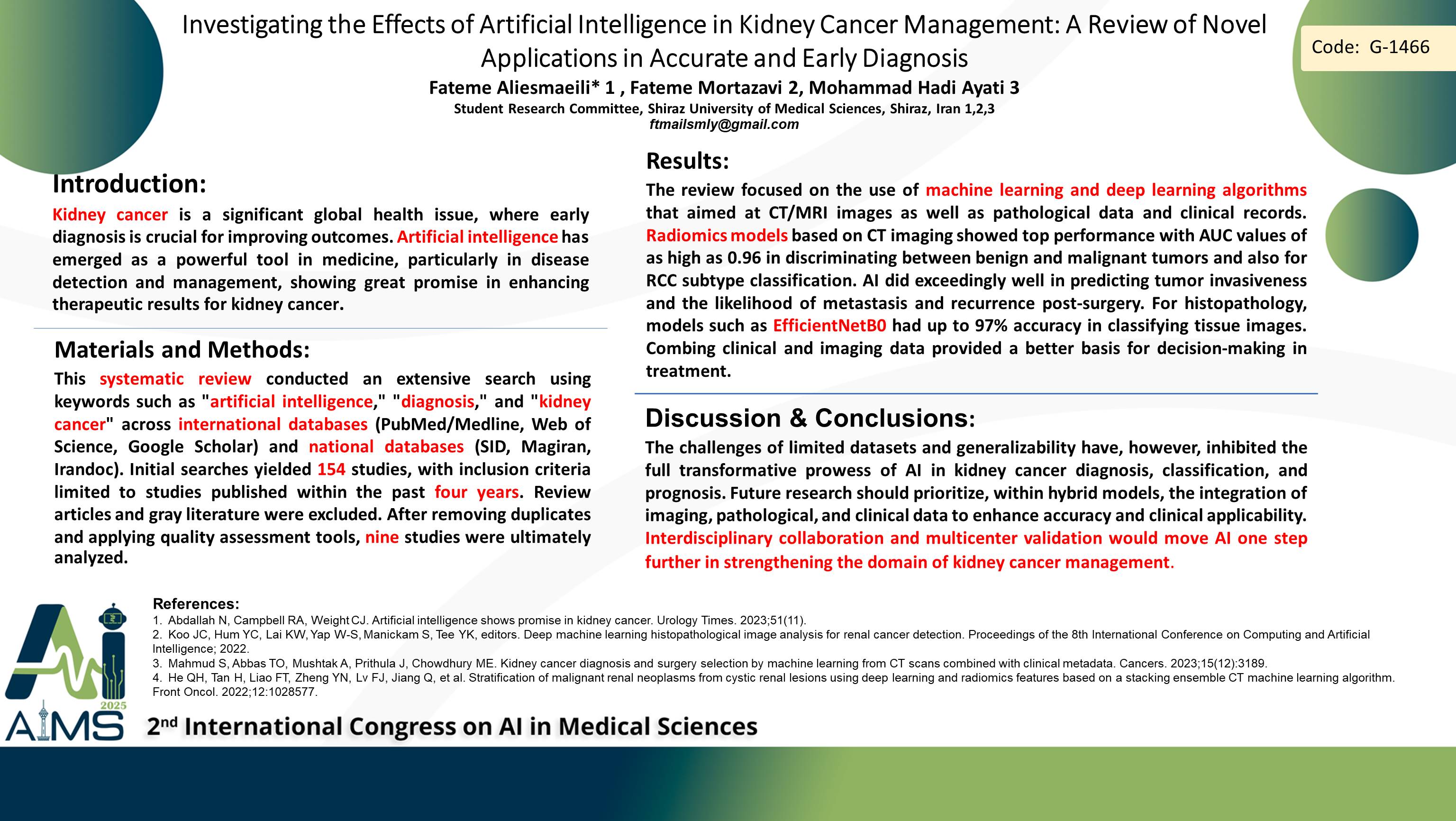Investigating the Effects of Artificial Intelligence in Kidney Cancer Management: A Review of Novel Applications in Accurate and Early Diagnosis
Code: G-1466
Authors: Fateme Aliesmaeili *, Fateme Mortazavi ℗, Mohammad Hadi Ayati
Schedule: Not Scheduled!
Tag: Clinical Decision Support System
Download: Download Poster
Abstract:
Abstract
Background and aims: Kidney cancer is a significant global health issue, where early diagnosis is crucial for improving outcomes. Artificial intelligence has emerged as a powerful tool in medicine, particularly in disease detection and management, showing great promise in enhancing therapeutic results for kidney cancer. To date, there have been several studies, however, there was a sharply felt need for a more inclusive review of AI in kidney cancer conduction diagnosis rationale, thus this paper was framed to deal with that. Method: This systematic review conducted an extensive search using keywords such as "artificial intelligence," "diagnosis," and "kidney cancer" across international databases (PubMed/Medline, Web of Science, Google Scholar) and national databases (SID, Magiran, Irandoc). Initial searches yielded 154 studies, with inclusion criteria limited to studies published within the past four years. Review articles and gray literature were excluded. After removing duplicates and applying quality assessment tools, nine studies were ultimately analyzed. Ethical considerations, including bias avoidance during study selection, data extraction, and analysis, were strictly followed, and findings were reported according to PRISMA guidelines. Results: The review focused on the use of machine learning and deep learning algorithms that aimed at CT/MRI images as well as pathological data and clinical records. Radiomics models based on CT imaging showed top performance with AUC values of as high as 0.96 in discriminating between benign and malignant tumors and also for RCC subtype classification. AI did exceedingly well in predicting tumor invasiveness and the likelihood of metastasis and recurrence post-surgery. For histopathology, models such as EfficientNetB0 had up to 97% accuracy in classifying tissue images. Combing clinical and imaging data provided a better basis for decision-making in treatment. Conclusion: The challenges of limited datasets and generalizability have, however, inhibited the full transformative prowess of AI in kidney cancer diagnosis, classification, and prognosis. Future research should prioritize, within hybrid models, the integration of imaging, pathological, and clinical data to enhance accuracy and clinical applicability. Interdisciplinary collaboration and multicenter validation would move AI one step further in strengthening the domain of kidney cancer management.
Keywords
Artificial Intelligence, AI, Diagnosis, Kidney Cancer
